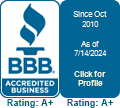This year’s fourth annual World MRSA Day is on October 2. MRSA stands for methicillin resistant Staphylococcus aureus, and is a superbug bacterial infection that is resistant to most antibiotics. Even though MRSA infection rates are under-reported in the US, data shows more people die each year from serious MRSA infections than HIV/AID’s combined.
The World MRSA Day event was started to help raise awareness about MRSA and other superbug infections, and also as a way for family members and MRSA survivors to share their stories. In an effort to heighten awareness about MRSA both in America and abroad, MRSA World day hopes to be a catalyst for change and to help build MRSA prevention campaigns with the help of the CDC and U.S. Congress.
Other articles you may be interested in
Can you ever get rid of MRSA completely?
Spider bite or MRSA?
MRSA carrier facts and myths
Be aware – MRSA is contagious
MRSA is found across the world and while it once was found predominantly in health care facilities, it is now found in community areas like gyms, beaches and schools, and on objects people touch like shopping cart handles, buttons, cell phones and more.
MRSA is contagious and is typically transmitted by touching contaminated objects or people who are infected, and by inhalation of the bacteria through the air. After coming in contact with the bacteria, you may not become infected at all. You also may become a MRSA carrier, meaning you have the bacteria on your skin, but you are not actively infected. You can also become infected, and it most commonly appears as a skin infection that often looks like a bug or spider bite and it can form a painful boil, pimple, abscess, red rash or cellulitis.
Helpful MRSA prevention tips
MRSA doesn’t have to be a life sentence. There have been many people who’ve stopped all types of MRSA from coming back. Educate yourself on what to look for and how to help prevent and treat MRSA. Here are some tips to help you and your family.
- If you or someone in you home has an active infection, regularly clean and disinfect high-touch surfaces and shared objects in your home, including toys, towels, remote controls, keyboards, counter tops, bathroom surfaces and door knobs.
- Always wash up well after contact with an infected person or treating wounds. Keep any open wounds covered.
- I prefer non-toxic disinfectants as chemical toxins can reduce immune system function.
- Wash your hands frequently, especially before eating, applying makeup or touching your face.
- Avoid sharing personal items with an infected person, including clothing, tooth brushes, towels, razors, personal products and makeup.
- Don’t use antibacterial soaps or other antibacterial products. Antibacterial agents kill off the good as well as the bad bacteria and are linked to antibiotic resistant bacteria like MRSA.
- If you have a child with MRSA, studies show parents are at a greater risk for becoming colonized with MRSA than the general public.
- Keep your immune system strong. Consider an immune-boosting diet, probiotics, and proper supplementation.
- Consider keeping antibiotic alternatives on hand, in case an infection develops. It’s much easier to stop an infection when it’s just starting.
- Be aware that MRSA can go into hiding in your body as l-forms or biofilms because of antibiotic use. Be sure you address this form of resistance in your treatment approach.
- Lastly, be under the care of a physician if you have MRSA or Staph as these infections can rapidly progress.
There is Hope
If you get a MRSA infection, know all of your options. Many non-antibiotic alternatives have little to no incidence of antibiotic resistance and are often more effective than antibiotics. If you use antibiotics, get educated about their side-effects and find out how to rebuild your immune system to help prevent recurring MRSA infections (common to most people).
To help people fully understand what they are dealing with, I cover understanding MRSA, how it’s transmitted, alternative treatment approaches and MRSA prevention in easy-to-understand detail in my program MRSA Secrets Revealed. You will also find a great deal of helpful information on my website and in this blog.
To your best health,
Michelle Moore
Microbiologist, Health Expert and Author of MRSA Secrets Revealed
Helping others with Staph and MRSA since 2008





